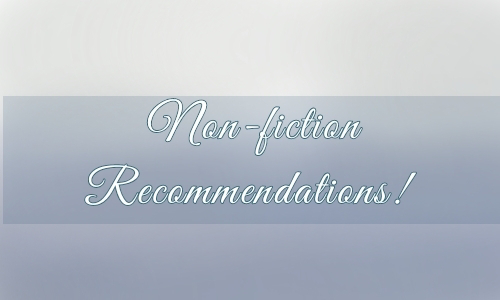Some Non-Fiction Books To Read - Beginner Friendly
Non-fictions are not my strength. But here I have for you some recommendations which I personally enjoyed and learned form. The complete non-fictionality of the first two are rather debatable, but then again, there is always fictional elements in any narratives that we create, and non-fictional elements that are incorporated into fiction through codes, sometimes directly even.
So, check this very small list out, five to be exact, and pick up one for your next read.
1. Sophie's World (1994) by Jostein Gaarder
“It's not a silly question if you can't answer it.”
If you are interested in philosophy or would like to have a basic knowledge about its history, this is a good book for you to begin at. It is written in a very accessible and interesting way.
Sophie's World is an introduction to philosophy, and a quite different one at that. It is written in the form of a novel. Young Sophie, our protagonist receives a letter in her mail box which reads: 'Who are you?' - which gets her to thinking. Follow this, she begins to receives postcards addressed to another girl named Hilde, wishing her Birthday - which is coincidentally on the same date as Sophie's. To understand the truth behind these puzzling occurrences, she takes upon an offer to teach her philosophy by an old philosopher, Alberto Knox. She receives letters from him through which, together with Sophie, we too learn the history of philosophy, starting from the Pre-Socratic philosophers to the existential philosophy of Jean Paul Sartre.
It is part fiction, dealing with non-fiction, and filled with intrigue in both the parts. The plot will bring about unexpected reveals which will make you think and is also philosophical in the original spirit of the book.
If you are looking for a good mystery that will turn your head a bit, try this. The philosophy part is a bonus. Nothing to lose.
2. Jonathan Livingston Seagull (1970) by Richard Bach
Jonathan Livingston Seagull is a fable like inspirational story about attaining one's potential and finding one's own truth.It tells the tale of a seagull who gets expelled from his folk as he begins to behave in ways which are not typically considered 'seagull like'. He finds his passion in flight and follows it as he tries his limits, perfecting his skill, and attains a spiritual existence.
It is an easy and liberating kind of read.
3. Man's Search for Meaning (1946) by Viktor E. Frankel
“When we are no longer able to change a situation, we are challenged to change ourselves.”
A very short book with a lot contained in it.
Man's Search for Meaning narrates the experience of the author, Viktor Frankel, during his time as a prisoner in a Nazi concentration camp, and about what kept him going. The book is in two parts. His observations about prison life or rather the life in the concentration, the different stages of it - how it affected the inmates mentally, the different stages involved- and how their desire to stay alive .i.e. having a sense of purpose, positively or negatively impacted their longevity is discussed in the first part; while the second part focuses on his theory of logotheraphy, a school within psychotherapy that focuses on the 'will to meaning' as proposed by Soren Kierkegaard, that he developed, and gives further definition to the meaning of life and how it exists despite the highs and lows that life throws one's way.It shows the persevering power within human beings, the ability to find meaning even within the horrors of the concentration camp. It was a grounding and therapeutic experience, something optimistic.
If you are interested in psychology and haven't got much knowledge about the psychotherapeutic methods, do pick this up even though it's nothing too much rooted in the academic side of it. It is also suitable for anyone who haven't read the book;)
4. When Breath Becomes Air (2016) by Paul Kalanithi
When Breath Becomes Air is a memoir by Dr. Paul Kalanithi which he wrote during his battle Stage IV metastatic Lung Cancer . An attempt to catch up with his old desire to write and share his love for literature through which he talks about his life and the illness which has propelled him to write this.
He shares his experiences from his childhood to the day he is writing, everything that stands out to him, the choices that he made which led him to taking up his profession, and the dedication and time it demands to be a successful neurosurgeon; the sacrifices life asks of you and the tiny miracles it provides. The narrative is so fresh and honest, and is written beautifully. It is greatly inspiring, the spirit depicted by Kalanithi in his writing as he recounts the milestones of his life and shares with us the value and fragility of life, the fascination and wonder it holds.
It is highly recommended if you haven't tried reading memoir's or autobiographies.
5. Tuesdays With Morrie (1997) by Mitch Albom
Tuesday's with Morrie is a memoir by the author and records the Tuesdays that he spend visiting his former sociology professor, Morrie Schwartz, as he is bed-ridden with ASL - a neurodegenerative neuromuscular disease. The book consists of the interactions between the student and the professor during his fourteen visits, as they share and discusses on their life's experiences, ideologies and lessons learned. The book can be considered Morrie's last lecture to Mitch and through him to the world, touching on various aspects of life and growing old with it.
The audiobook narrated by the author is also available.
Happy Reading!











Post a Comment